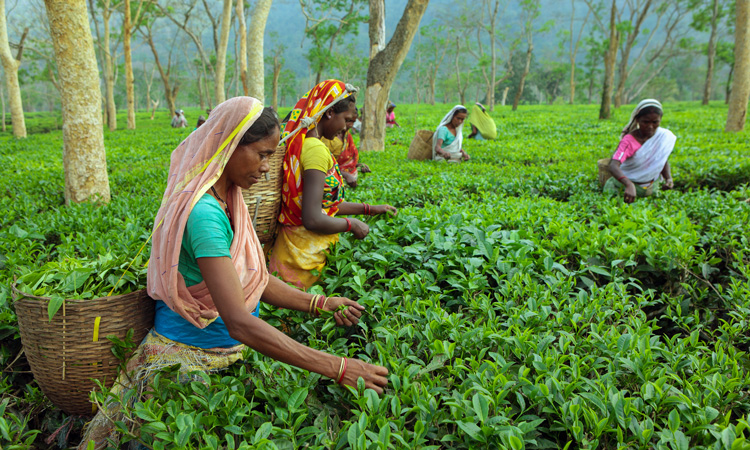FAO calls for joint action to ensure sustainability of tea sector
- Like
- Digg
- Del
- Tumblr
- VKontakte
- Buffer
- Love This
- Odnoklassniki
- Meneame
- Blogger
- Amazon
- Yahoo Mail
- Gmail
- AOL
- Newsvine
- HackerNews
- Evernote
- MySpace
- Mail.ru
- Viadeo
- Line
- Comments
- Yummly
- SMS
- Viber
- Telegram
- Subscribe
- Skype
- Facebook Messenger
- Kakao
- LiveJournal
- Yammer
- Edgar
- Fintel
- Mix
- Instapaper
- Copy Link
Posted: 22 May 2020 | Sam Mehmet (New Food) | No comments yet
Marking International Tea Day, FAO led a virtual event attended by tea exporters, producers, experts and advocacy organisations to highlight the need to prioritise the sustainability and prosperity of the tea sector.


The Food and Agricultural Organization of the United Nations (FAO) has marked the first International Tea Day (21 May) by stressing the crucial need to ensure the sustainability of tea production, especially at a time when the world economy enters a recession and incomes decline as a result of the COVID-19 pandemic.
“Tea, as a source of employment and revenue, can help alleviate some of the hardships resulting from the current economic downturn”, said FAO Director-General, Qu Dongyu.
Highlighting its contribution to fighting hunger, reducing extreme poverty, empowering women, while safeguarding ecosystems and biodiversity, Dongyu encouraged all stakeholders to forge partnerships and concrete projects to further sustainably develop the sector.
He stressed the need for better policies, more innovation, increased investments and greater inclusiveness in tea production and processing, as well as highlighted the social, cultural and health dimensions of tea.
The virtual event brought together representatives from the world’s top exporting and importing countries as well as major producing countries where tea cultivation is a considered an important source of jobs and income, including Argentina, China, India, Indonesia, Kenya and the Republic of Korea.
In addition to the tea’s socio-economic benefits, the speakers highlighted its importance as cultural heritage and discussed its health and nutritional aspects including the beverage’s anti-inflammatory, antioxidant and weight loss effects.
To achieve greater sustainability in the sector, the panellists agreed on the need to develop strategies for climate change adaptation and mitigation, promote market transparency and sustainability of the tea value chain and develop policies for sustainable tea production benefiting, first and foremost, smallholder farmers.
Related topics
Related organisations
Food and Agricultural Organization of the United Nations (FAO)








